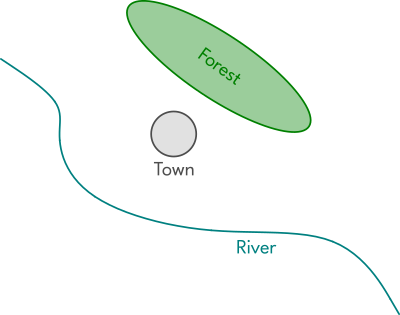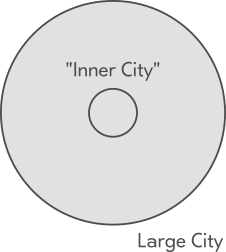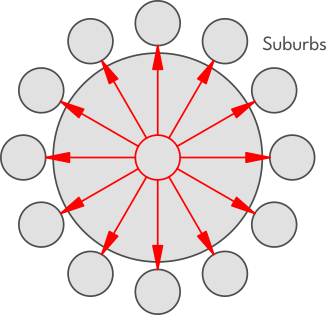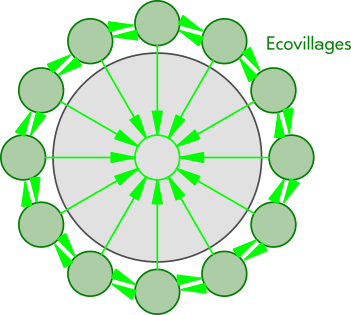

Glossing Over Some History
Some people have seriously attempted to create a "utopia", an idealized social system wherein everyone gets along in harmony and has their needs met sustainably. The term "utopia" has its origin in a book written by Thomas More, an English statesman, that was published in 1516. It is about a fictional island nation named "Utopia", which is derived from the Greek (οὔ "not" + τόπος "place" = "not a place", "nowhere"). We might liken it to the stories of mythical places from a long forgotten "Golden Age" (e.g.: Plato's "Atlantis" or James Hilton's "Shangri-La"). The modern equivalent would be the genre of "Solarpunk" [Many thanks to JR's StoryTime for creating this last page!].Intentional Communities & Ecovillages
An "intentional community" is any group of persons who voluntarily choose to come together for some particular purpose. This might include ideas like "co-housing" (which is to make neighborhoods that have shared resources) or "cooperatives" (which are businesses that are collectively owned). There are many different ways that these types of communities can be structured or operate, but it doesn't have to be overly complicated to get a general idea of what they are and how to start one....we will define an eco-village as a human-scale full-featured settlement in which human activities are harmlessly integrated into the natural world in a way that is supportive of healthy human development and can be successfully continued into the indefinite future.While some of the oldest communities still exist, most are not "ecovillages" in the sense of being fully sustainable. Many are also supplemented by donations and/or have some sort of business attached to them in order to fund their operation. For example, Arcosanti forges bells, East Wind manufactures nut butters, and Twin Oaks weaves hammocks that they sell to make money.

Important Considerations About Safety
If one is trying to leave a destructive circumstance and/or transform the aspects of society which are destructive, it doesn't make much sense to simply exchange one set of problems for another. Therefore, it is important to understand the exact nature of any groups that one might be interested in joining before actually doing so. Again, no matter what name they go by, communities can vary drastically in their structure and function. While some may be like spas or retreat centers, others can be almost no different from homelessness. Are you prepared to survive under those conditions? There are also many different behaviors that one could be exposed to within those environments. To give a couple of examples:| Criterion | General Meaning |
|---|---|
| 1. Milieu Control | Control of all communication within the group environment |
| 2. Mystical Manipulation | Claims of a transcendent purpose that is exclusive to the group |
| 3. The Demand For Purity | Requiring complete allegiance to the group; demonizing those outside of the group |
| 4. Confession | Using personal information as a means to manipulate; conditioning destructive self-talk |
| 5. Sacred Science | Holding a doctrine that cannot be questioned and which is assumed to be perfect |
| 6. Loading The Language | The use of "thought-terminating clichés", statements that keep dialogue from occuring |
| 7. Doctrine Over Person | Conditioning self-doubt ("gaslighting") and a destructive self-image |
| 8. Dispensing of Existence | Isolating, separating from others through fear |
Grand Synthesis
There are many aspects that must come together for an ecovillage to be functional. The Sustainability Circle (also known as The 4-Dimensional Model) by Gaia Education captures this well:
Starting At Home
As cities grow (a process known as "urbanization"), they seem to follow a particular pattern. We will give a simplified description of this process, how it becomes destructive, and make a few suggestions about what can be done about it for everyone's benefit...



Conclusion
We need an expansive and creative vision to work towards, yet at the same time, we cannot make assumptions that will lock us into thinking that blinds us from reality. Therefore, the idea of a "utopia" is only useful if we can realistically explain how to create it, sharing step-by-step procedures and tools that lead us towards actions that make those visions manifest. We hope the above article can contribute to that.